Gardening Green
with Doug
11 Best
Low-Maintenance Perennials to Plant in Your Garden Now
By Doug Oster
September 15, 2021
It’s usually the first cool morning that alerts gardeners to the inevitable realization that summer is fading away — a fact we all try to ignore.
It’s a call to action, as fall is the best time of the year to plant shrubs, trees, bulbs and perennials.
I’m often sent perennial plants to trial before they are officially released to the gardening public. They usually arrive about the third week of May, when it’s all a gardener can do to keep their wits about them during the spring planting rush.
The boxes are opened quickly and the plants are stacked into the greenhouse where they sometimes live for months until they finally make their way into the garden.
Many of them are planted wherever there happens to be a spot and not always in the ideal location.
When they thrive in a variety of conditions, the plants show their worth.
If you’re looking for something to plant that doesn’t take a lot of maintenance, check out these perennials, which will return annually and are tough.
They’ve all been grown in my garden and have stood the test of time.
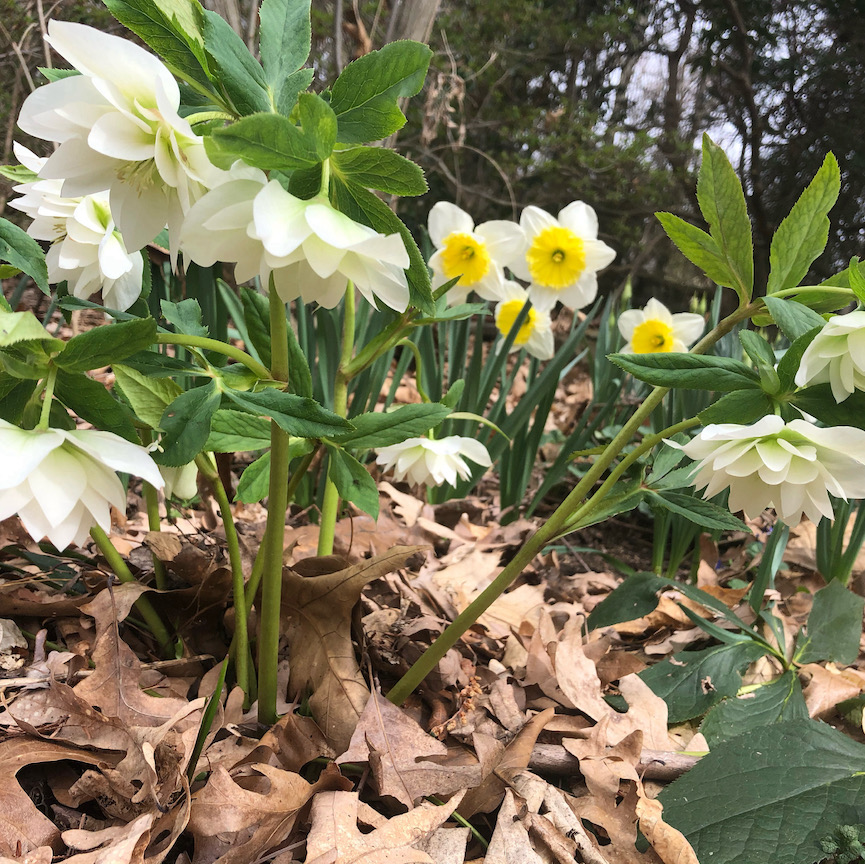
Helleborus orientalis (deer resistant)
These evergreen perennials like morning sun and afternoon shade, and once in place, don’t like to be moved. They start to bloom in the spring with the crocus and there is a multitude of different colors, shapes and sizes of the flowers.
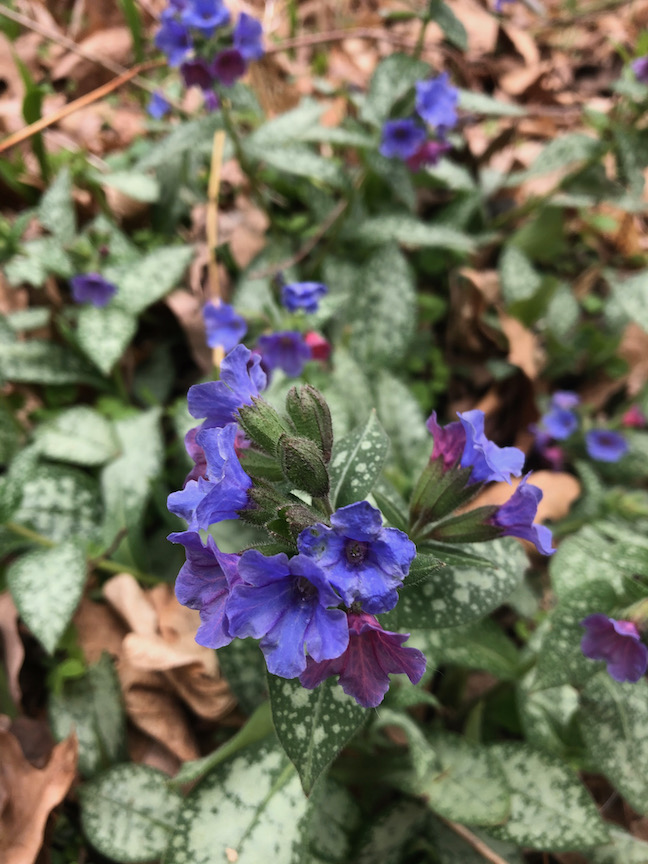
Pulmonaria or lungwort (deer resistant)
Another tough shade lover, many varieties offer variegated foliage under late spring purple flowers. This low growing beauty is perfect for the front of the border.
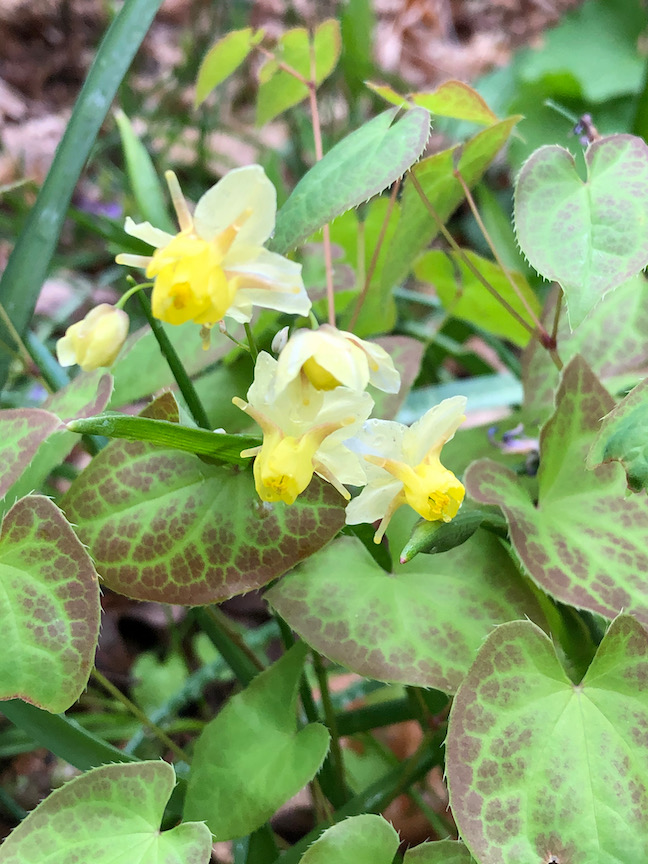
Epimedium (deer resistant)
This is the perfect delicate looking plant, which is one of the hardiest growers. Epimedium is the perfect plant for problem areas like dry shade. Another low grower, they often have foliage tinted with red and the flowers can be yellow, red, pink, purple or white. An indestructible addition to the garden.
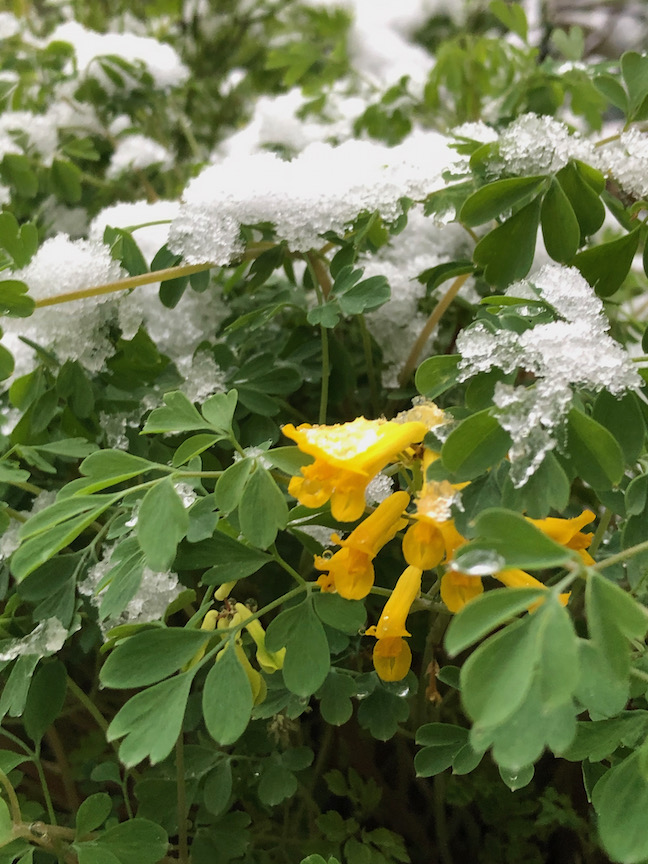
Corydalis lutea (deer resistant)
Long-time readers know this is my favorite all-time perennial. Last April plants filled with blooms were covered in snow but weren’t bothered at all. C. lutea will continue blooming all summer and into winter, it’s one of the longest flowering plants in the landscape and will form a nice colony over a few years by throwing seeds, not underground runners.
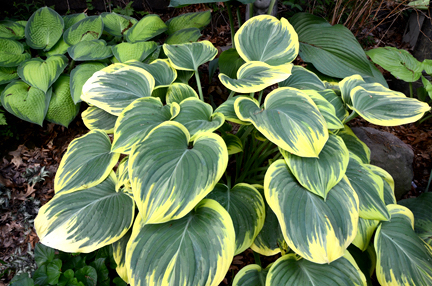
Hosta (deer and slug candy)
The only way to grow hostas in deer country is to cover them with a protective barrier or spray them with a repellent. They’re another shade lover, it’s so sad to see them suffer through the summer in full sun, but there are that resilient. Take a deep dive into tiny leaves, giant foliage, variegated plants and even red petioles (stems). Hostas can provide many wonderful design elements for the garden and as long as the deer and slugs are kept at bay will look beautiful all season long.
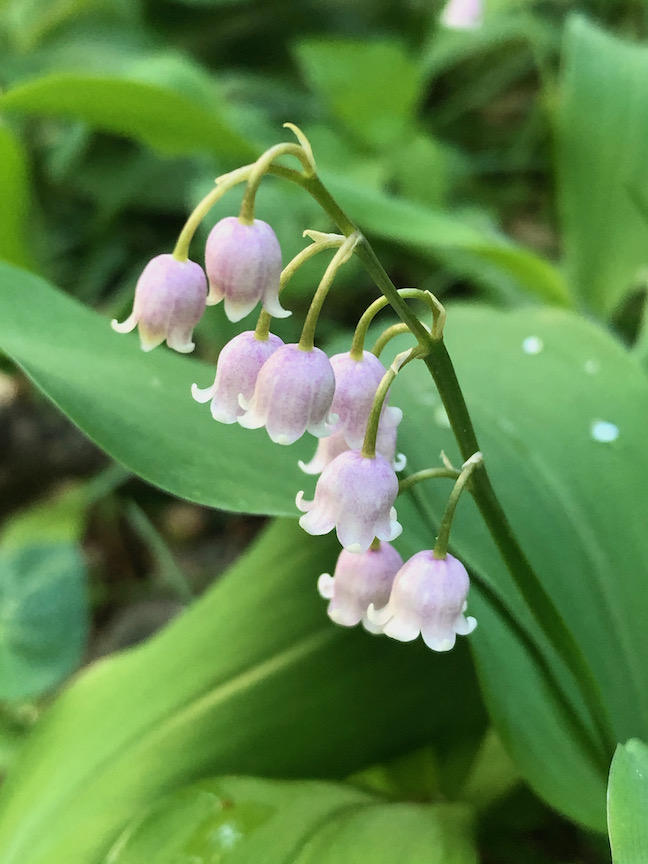
Pink lily of the valley Convallaria majalis 'Rosea' (deer resistant)
The old-fashioned fragrance of the white and pink lily of the valley is intoxicating. The low grower is happy just about anywhere and can take over is planted in better than average soil. ‘Rosea’ has soft pink flowers and just adds a little charm to the garden. I like them interspersed with the standard white varieties.
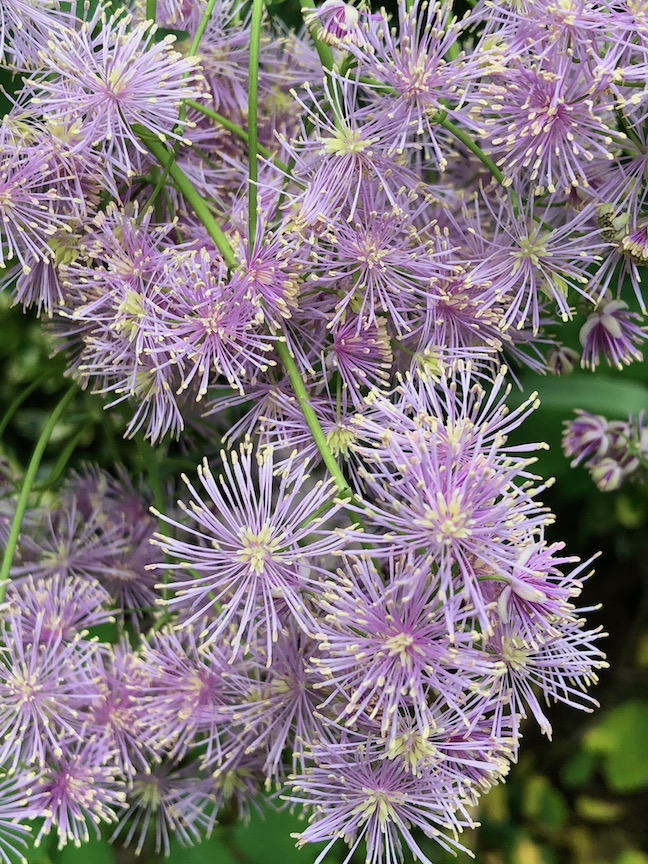
Meadow rue (deer resistant)
These late spring bloomers wave in the breeze and need nothing from the gardener. They have pretty purple, pink or white flowers and enjoy morning sun along with afternoon shade. They will self-sow where they are happy.
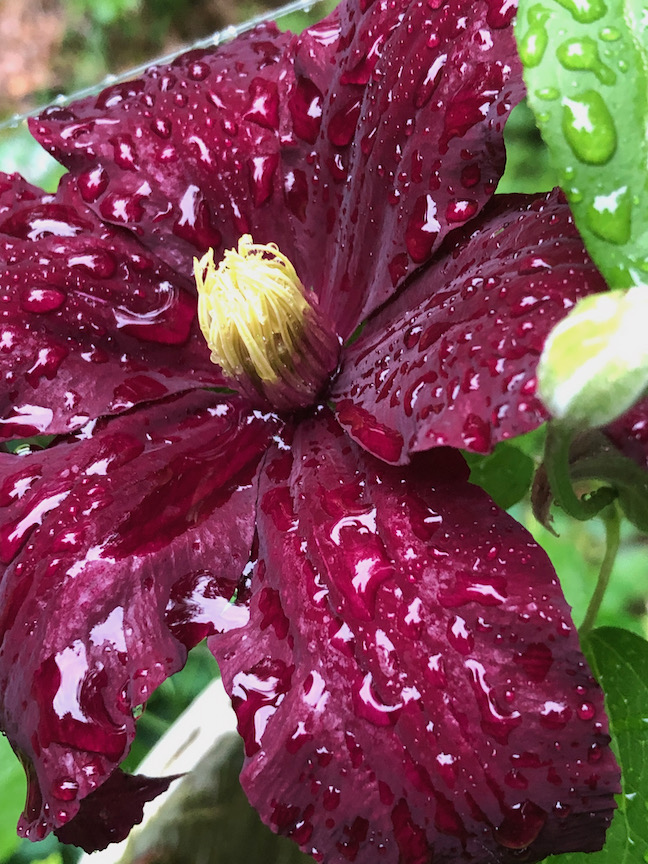
Clematis (deer resistant)
This is the wide-ranging genus of vines with many different colors, shapes and sizes. This is the perfect time to pick them up on sale as many have finished blooming. Once the roots get established, this plant will outlive the gardener.
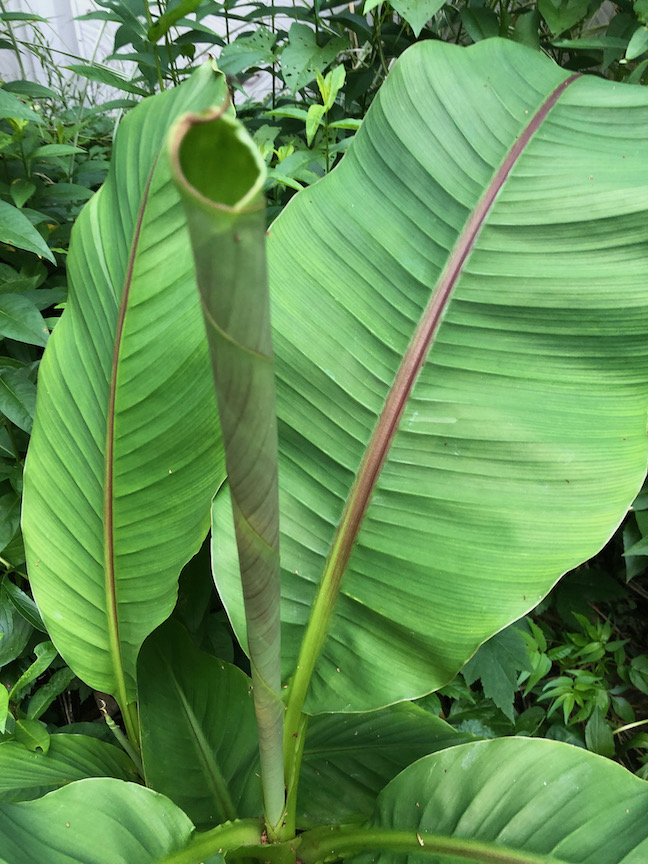
Hardy banana Musa basjoo (deer resistant)
Nothing could be easier than a hardy banana. As they mature, the plants can reach 20 feet or taller. They add a tropical feel to the garden and will grow in sun or shade. At the end of the season, it’s cut to the ground and mulched.
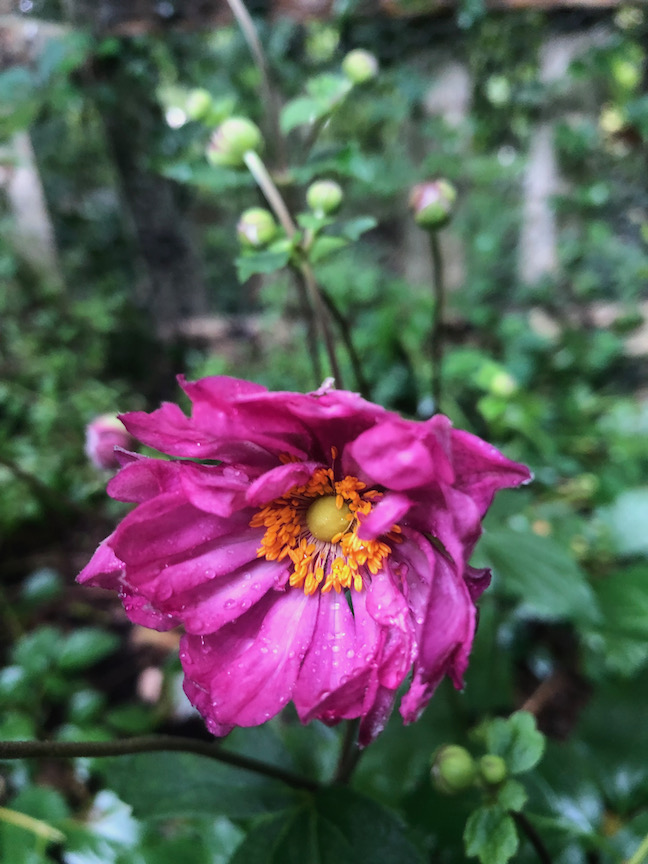
Anemone ‘Fall In Love Sweetly’ (deer resistant, they will nibble)
This was one of those plants sent to me which was stuck in a shady corner of the garden for two seasons. It loves the sun, and if it will bloom in the shade bed, I can’t imagine how good it will look when it’s transplanted to a more suitable bed. This is a short one, reaching about two feet, but there are other cultivars that get four feet tall and dance in the late summer breeze.
Anemone in general is trouble-free and can actually be a bully when planted in good soil. Another great plant for problem areas.
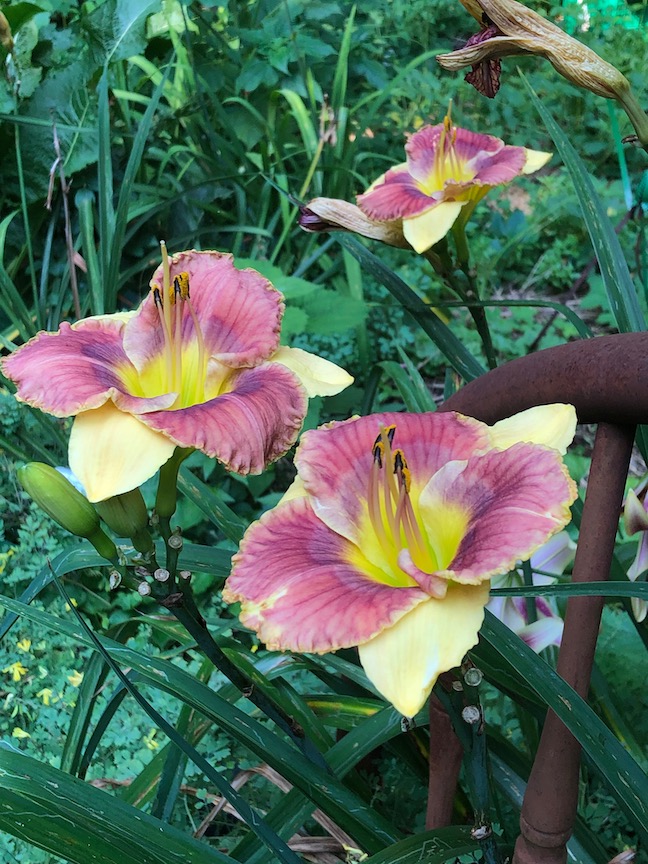
Daylilies (deer candy)
You’ll need to spray a deer repellent on daylilies if you want to see them bloom if your local herd is active.
Modern varieties are rebloomers, some flower for most of the summer. Nothing is easier to grow and they love full sun.
Planting tips
- The best soil preparation includes adding good compost, which can be found by the bag at local garden centers.
- Dig the planting hole, add some compost and mix it in with the backfill.
- Never plant a perennial deeper than it was in the pot.
- Water each plant well and mulch, being sure not to touch the base of the plant with the mulch.
- Continue watering until the ground freezes if rain is scarce.
Shopping tips
- Look for perennials in smaller containers. They are less expensive and will quickly catch up to those in bigger pots.
- Spend time scouring the nursery for sale or TLC plants.
- Many perennials which are no longer in bloom can be harder to sell and therefore marked down
- Take your time when shopping for plants, you’ll be surprised what might be in the back greenhouse of a great, local garden center.
Once these carefree plants are put in place, they might need a little water or fertilizer, but other than that will bring joy and beauty to the garden year after year.

Hi Doug, haven’t been in touch for some time. Love those perennials you showed.. Hope you are well. I did call one day,but it wasn’t good time . I would much rather email you. Our computer is almost non functional ?. I’m going to try to send you a picture of something strange.